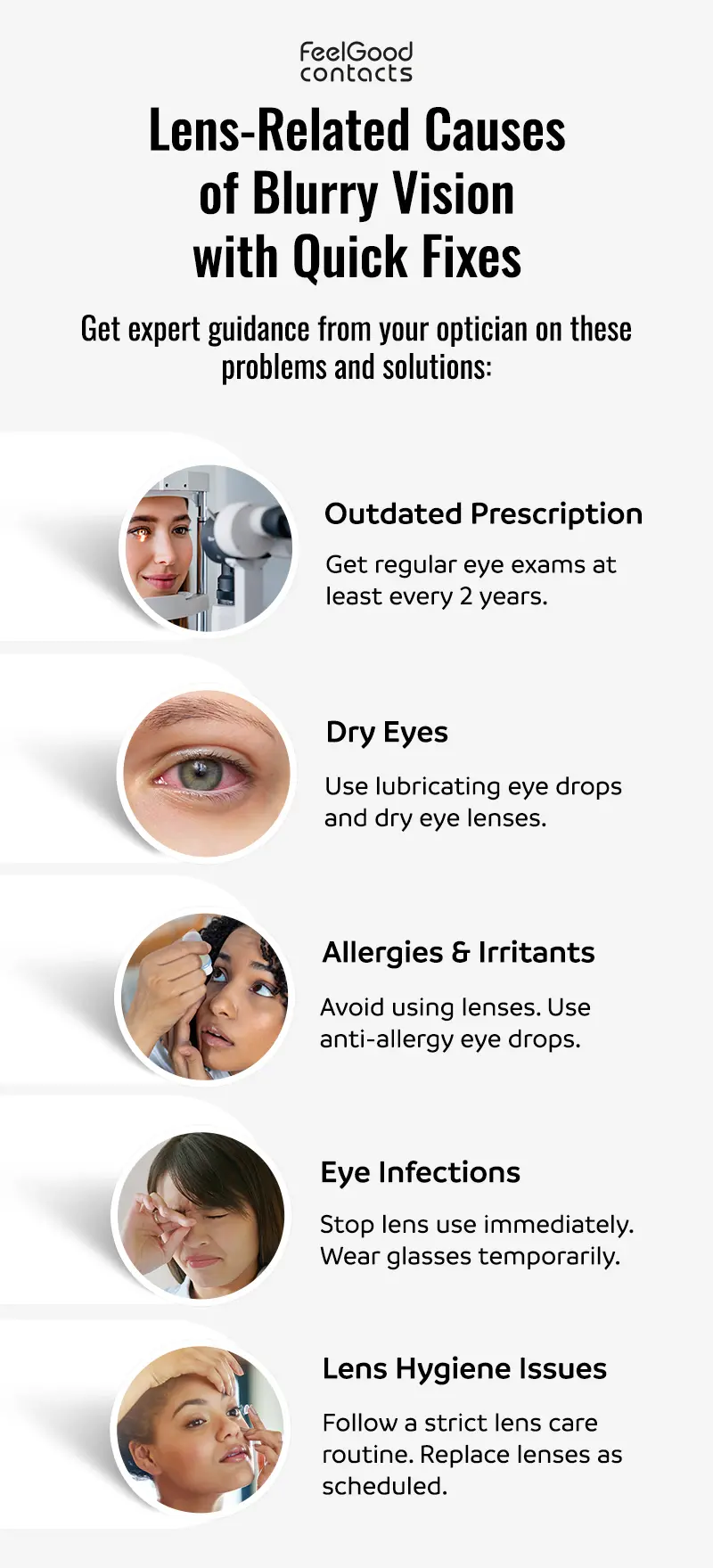Wearing contact lenses is meant to provide clear and comfortable vision, but what happens when your sight turns blurry? Let’s discuss the potential issues behind blurry contact lenses and how they can be resolved for you to enjoy sharp vision.
What is blurry vision?
Blurry vision is when the environment around you appears hazy or unclear. It can impact daily life activities and obstruct the ability to see fine details. The situation may worsen when your contact lenses also do not help and calls for immediate attention.

Causes of blurry vision with contact lenses and solutions
Do you often find yourself squinting, rubbing or blinking your eyes to focus better, even when you have contact lenses on? If your contact lenses have suddenly made your surroundings look hazy, it could be due to several factors. You shouldn’t take blurry vision for granted because it may be a mild inconvenience today, but tomorrow, it could turn into a bigger problem. Here are some of the most common reasons why you may experience blurry vision with contact lenses:
Prescription changes
Your vision may naturally change over time. Whether it’s due to ageing, you have astigmatism, or have a progressive condition like presbyopia, your current prescription may change. If your lenses don’t match your updated prescription in terms of power and/or fitting, light rays won’t focus correctly on your retina, leading to blurry vision.
To ensure that you are always wearing an up-to-date prescription, you need to schedule regular contact lens check-ups, typically once every year or as recommended by your optician. Please note that if you’re new to contact lenses or have just got a new prescription, it might take a week or two to adjust to it. During this time, you may experience slight blurriness, but this should gradually go away.
Dry eyes
Dry eyes occur when your eyes don’t produce enough tears, or the tears evaporate too quickly. This condition can be common among contact lens wearers and can cause irritation, redness and blurred vision.
To prevent dry eyes, regular contact lens wearers swear by lubricating eye drops, or rewetting drops as they help relieve the above-mentioned mild symptoms on the go. For persistent dryness, your optician may recommend special lenses designed for dry eyes or prescribe medicated eye drops.
Optase Comfort Drop handy vials are a popular choice to hydrate dry eyes caused by wearing contact lenses.

 Offers
Offers Account
Account
 Favorite
Favorite
 Basket
Basket

 OFFERS
OFFERS




















